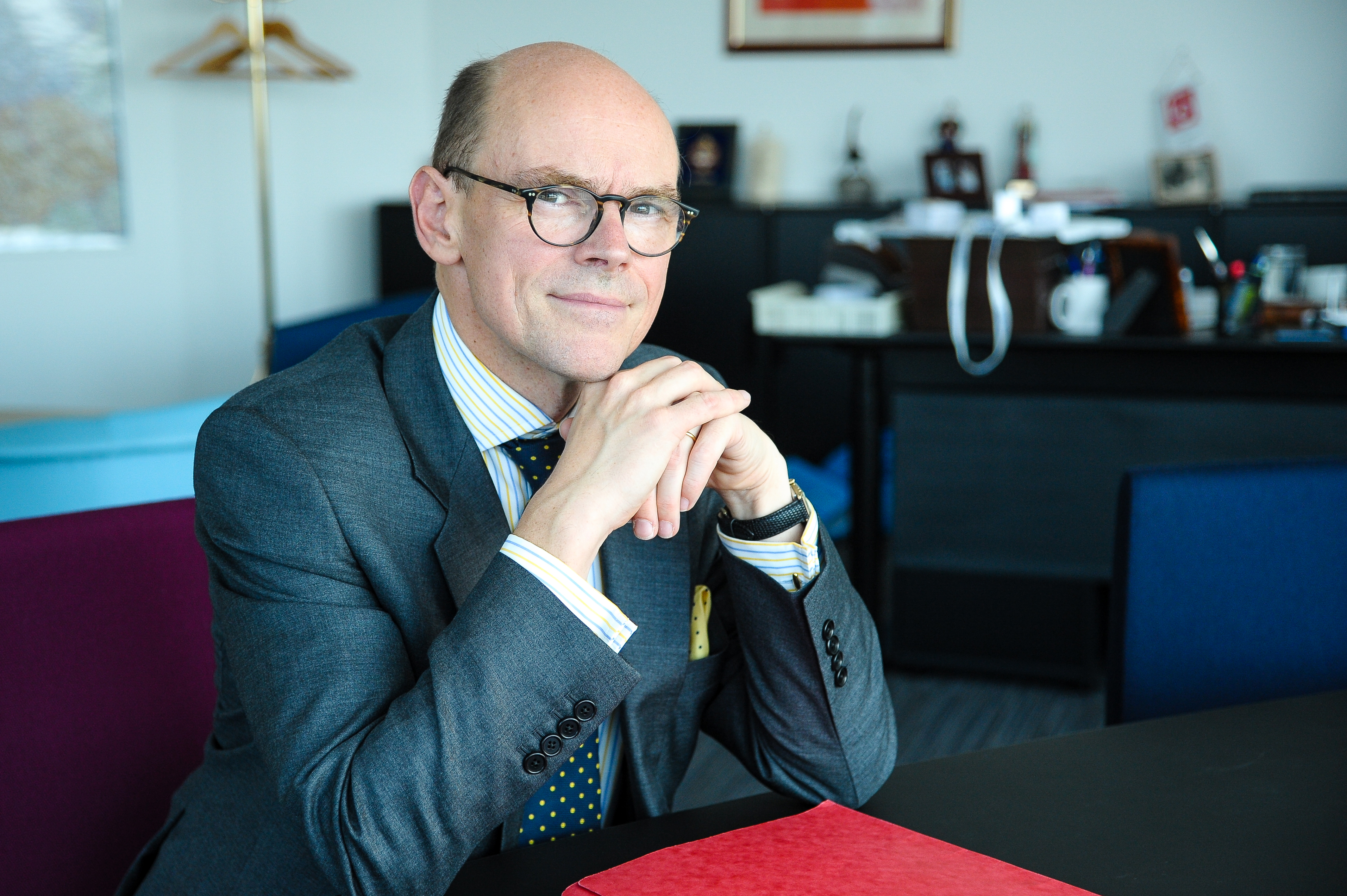Although not an EU member state, Norway fully supports Serbia’s EU integration process, and hopest to see more Norwegian companies coming to the Serbian market.
We spoke with H.E. Arne Sannes Bjørnstad, Norwegian Ambassador to Serbia about the perspective of the Western Balkan in the EU context and the bilateral relations between Norway and Serbia.

The Royal Norwegian Embassy in Belgrade covers Serbia, Macedonia and Montenegro. From that perspective, how do you see security in the Western Balkan?
We live in turbulent times. The Western Balkans belongs to the European family. Indeed, the Western Balkans are at the very heart of Europe, and what happens here effects all Europeans. The fact that the First World War started due a politically motivated murder in Sarajevo proved the point. Nationalism and populism from both sides of the political spectrum are still factors of instability in the region, and all the countries are recent and fragile democracies. The recent refugee/migrant crisis can serve as an example of a common challenges faced through cooperation. The combination of regional cooperation and Euro-Atlantic integration is as far as I can see the best way to stabilise the Western Balkans and create the conditions for economic and social development that will reduce the potential for tensions and prevent a return of the conflicts of the past.
What do you see as major forces that can contribute to the security of the region and how do you see a role of Serbia in that respect?
All countries in the Western Balkans are either EU members or membership candidates. This is probably the strongest contributor to stability in the region today. At a Sarajevo summit in early April, the prime ministers of the Western Balkan countries put an emphasis on their commitment to the EU accession perspective and expressed their sincere devotion to the process of reconciliation as essential for security and stability in the region. Talking more specifically of Serbia, it has become a pillar of stability in the region. Prime minister (now president elect) Vučić deserves the support of all of Europe in his efforts to improve relations with Serbia’s neighbours and to make the Western Balkans a region of cooperation, not conflict.
What do you see as Serbian priorities when it comes to strengthening the rule of law, democracy and economic prosperity?
The Government of Serbia has embarked on an important reform process within the EU accession process. Eight chapters have been opened in a short period of time, which confirms the progress made. Continuation of the reforms to bring Serbia up to Western European standards should be the main priority. Further efforts are needed to give Serbia an efficient and impartial judiciary and a transparent, public administration. The same goes for liberalisation of the economy, creating a level playing field for all. Given the legacy of Yugoslavia and then the Milošević years, Serbia has a lot of catching up to do, and but it is work in progress.
In which areas do you support the Serbian efforts in these processes?
Although not an EU member state, Norway fully supports Serbia’s EU integration process. We have decided to focus on law and order as well as public administration reform.
How do you see the bilateral relations of the two countries?
Our relations go way back in history. According to Icelandic sagas, a Norwegian king passed through Serbia in 1111 on his way back from the crusades and met “the king og the land”, pobabbly grad prince Vukan. This historic relationship was later strengthened with Norwegian support to Serbian independence, then with the arrival of Norwegian volunteers to help during the Balkan Wars and the First World War, the establishment of diplomatic relations in 1917 and finally by secretly helping Yugoslav Prisoners of Wars sent to labour camps in occupied Norway during World War 2. Today we are friends and partners. On the business side, Telenor and other companies are investing in Serbia and the trade relationship is developing. Politically, we are facing many challenges together despite different views on certain issues.
It seems that there is a growing cooperation between the Scandinavian countries and Serbia. What do you see as the most valuable achievements in that respect in the previous period?
Recently, I headed a group of representatives of Nordic companies to the city of Nis and following the meetings with local authorities, the Nordics expressed interest in investing in that part of Serbia. This is all thanks to the economic reforms Serbia had started implementing in a bid to ensure transparency and predictability as two key issues investors need.
In which areas do you see the potential for establishment of better ties between our two countries?
With Serbia progressing on its EU path, I hope to see more Norwegian companies coming to the Serbian market. There is also a room as well as interest for more culture cooperation, as we had a chance to see when organising NOktobar – a month of Norwegian culture in Serbia, the event we are planning to repeat this October.
How does our two cultures resonate today having in mind that Norwegian artists are very warmly welcomed in Serbia?
We often witness very successful visits of Norwegian artists in Belgrade. In April alone, Norwegians took part at the Resonate Festival, performed at the World Music Festival in Gornji Milanovac, Norwegian black metal icons played at Dom Omladine and there was also our exhibition A Touch of Glass in Novi Sad. On the other side, Serbian musicians and famous theatre plays had a great success in Norway. It seems that March was their NOktobar – a month of Serbian culture in Norway.